MATTHEW LOSCALZO LEADERSHIP SERIES 2024
Talking About What We Don’t Talk About:
Leadership Skills for Everyone
Format: Live webinars
*Live attendance is highly encouraged, but recordings will be available for missed sessions
Duration: 6 sessions, 60-90 minutes each
Dates: Multiple sessions between October 8 – November 14
Price: No cost to participate, funded by training sponsorships and grants
Credit: CE credits upon completion of the program
Registration now closed.
Leadership Essentials in Health Care: Welcome and Program Introduction
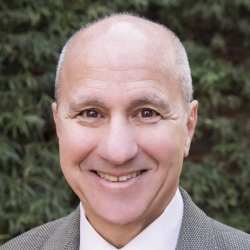
Matthew Loscalzo, LCSW, APOS Fellow
Executive Director, Couples Coping Together Against Cancer
Emeritus Professor Supportive Care Medicine
Professor Population Sciences
City of Hope
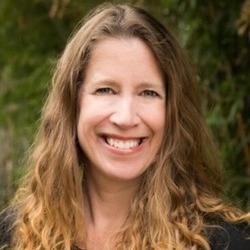
Karen Clark, MS
Director of Supportive Care Research and Training
Department of Supportive Care Medicine
City of Hope
- Understand the power of engaging others through shared: Values-Benefits-Outcomes
- Tailor communications to engage colleagues at all levels of hierarchy
- Describe staff leadership based on democratic values
Preparing the Next Generation of Health Care Leaders: Systematic Strategies to Develop, Harness, and Nurture Leadership Skills

Juee Kotwal, MBS, PMP
Senior Business Manager
Department of Supportive Care Medicine
City of Hope
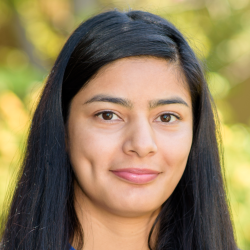
Lucia Lemus, MSW, LCSW, ACHP-SW, OSW-C
Clinical Social Worker Lead
Department of Supportive Care Medicine
City of Hope
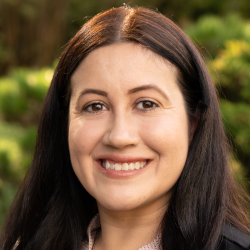
Joanna Luna, MSN, FNP-C
Nurse Practitioner
Supportive Care Medicine
City of Hope
- Identify and Cultivate Leadership Skills: Assess and develop key personal and professional leadership competencies to drive individual and team success.
- Apply Team-Based Interventions: Implement practical strategies to enhance trust, efficiency, and accountability within health care teams.
- Develop Systematic Leadership Approaches: Apply systematic strategies to nurture leadership potential within teams, fostering a culture of growth and collaboration.
Running an Effective Meeting: Evolution of a Small Group Process in a Multidisciplinary Health Care Environment

Karen Clark, MS
Director of Supportive Care Research and Training
Department of Supportive Care Medicine
City of Hope
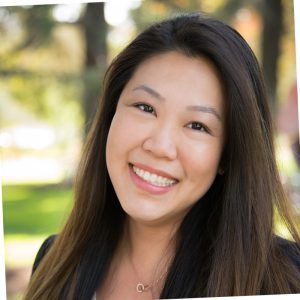
Eleana Liou, EdD, MPA, PHR
Program Director, Supportive Care Training
Department of Supportive Care Medicine
City of Hope
This session will equip participants with practical tools to lead more productive, inclusive, and outcome-focused meetings, driving excellence in patient care and team performance:
- Apply effective small group meeting strategies that promote collaboration, accountability, and efficiency in multidisciplinary health care teams.
- Enhance communication and conflict resolution skills to foster trust, creativity, and alignment with core team values.
Loneliness of Leadership: Interview with Dr. Susan Block and Dr. William Dale
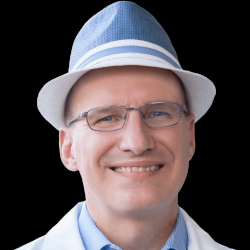
William Dale, MD, PhD
Professor and Vice Chair of Academic Affairs, Dept of Supportive Care Medicine
George Tsai Family Chair in Geriatric Oncology in Honor of Arti Hurria, MD
Director, Center for Cancer and Aging
Co-Lead, Cancer and Aging Research Group
City of Hope
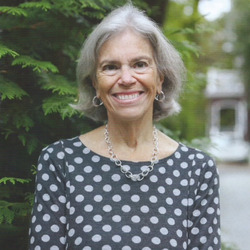
Susan Block, MD
Department of Psychosocial Oncology and Palliative Care
Dana-Farber Cancer Institute and Brigham and Women's Hospital
Professor of Psychiatry and Medicine
Harvard Medical School
Join us for an intimate and thought-provoking discussion featuring two distinguished health care physician leaders as they explore the often overlooked and personal challenges of leadership, specifically the loneliness that comes with guiding teams and complex health care organizations. The conversation will delve into how leaders must strategize, cope, and manage their responsibilities in ways that are seldom openly discussed. These renowned leaders will share their personal insights on how they maintain resilience, cultivate support systems, and develop practices to sustain themselves and their teams. This session will provide a rare glimpse into the internal workings of leadership at the highest levels in health care, offering valuable lessons for leaders at all stages of their careers.
This conversation is designed to evolve organically, allowing the physician leaders to take the discussion into unexplored territory as they share their unique experiences and insights.
This conversation is designed to evolve organically, allowing the physician leaders to take the discussion into unexplored territory as they share their unique experiences and insights.
- Recognize the emotional and psychological challenges of leadership in health care.
- Examine strategies for resilience and responsibilities to oneself and others as a leader.
- Explore insights into building supportive networks, mitigate the loneliness of leadership, and strengthen organizational effectiveness.
Money Doesn’t Grow on Trees: How to Fund Psycho-Oncology Programs from the Outside In

Matthew Loscalzo, LCSW, APOS Fellow
Executive Director, Couples Coping Together Against Cancer
Emeritus Professor Supportive Care Medicine
Professor Population Sciences
City of Hope
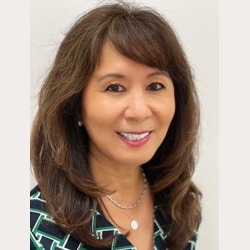
Lori McGee, MAP
Oncology Care Counselor
Clinical Social Work
Department of Supportive Care Medicine
City of Hope
Cancer care has never been more influenced by finances than it is today, and this laser-beam focus on revenue generation is only expected to accelerate in years to come. Healthcare is increasingly being described as “wealthcare.” Fortunately, with the graying of the American population, wealth accumulation, emergence of female leaders, and favorable tax advantages, unique philanthropic opportunities are emerging for biopsychosocial initiatives: clinical, research, educational and professional training.
An integrated interdisciplinary program will be presented that in 16 years, has raised over $50 million, has a $16 million endowment, expanded from 15 to ~170 FTEs, now includes two endowed chairs and one endowed professorship, and has a yearly operating budget of ~$25 million. The benefits of a departmental culture of funding and resource acquisition has led to a number of unique clinical, research, and professional training programs that have demonstrated value to patients, committed partners, other caregivers, and to the financial health of the institution. This presentation will identify who donates and why, and how to engage and excite colleagues in funding/resource generation.
- Identify potential donor opportunities in their respective communities and how to cultivate these.
- Describe the benefits of and how to create a culture where everyone has a role to play in program sustainability.
Multidisciplinary Leadership Panel: Realities of Leadership in Everyday Health Care Roles
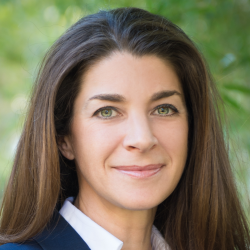
Natalie Schnaitmann, LCSW
Executive Director
Department of Supportive Care Medicine
City of Hope
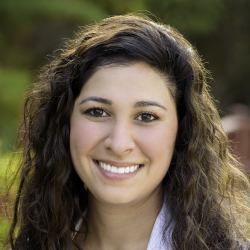
Heather Bitar, DO, FACOI
Assistant Clinical Professor, Palliative Medicine
Supportive Care Medicine
City of Hope
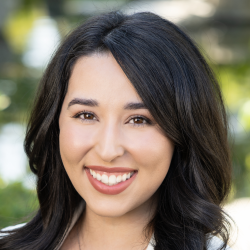
Daniela Mejia, MS, HCM
Program Coordinator
Supportive Care Office of Strategy & Integration
Department of Supportive Care Medicine
City of Hope
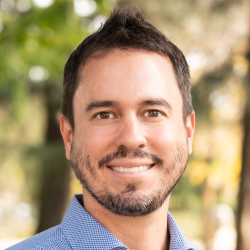
Carey Ramirez, ANP-C, ACHPN
Manager, Advanced Practice
Supportive Care Medicine
City of Hope
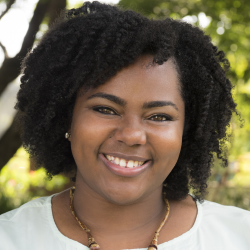
Bernie White, MSW, LCSW, OSW-C
Couples Clinician
Couples Coping with Cancer Together Program
Department of Supportive Care Medicine
City of Hope
This forum will reinforce the key leadership skills and methods highlighted throughout this series, covering high-performance team dynamics, the staff leadership model, the isolation of leadership, generating outcomes, and the strategic development of leadership. Panelists will share personal experiences, best practices, and insights into navigating the complex challenges of health care leadership. The session will provide real-world examples and actionable strategies for developing, harnessing, and nurturing leadership capabilities across an organization. Participants will have the opportunity to send in questions, engage with the panel, and reflect on how to apply these principles within their own teams.
- Reinforce essential leadership skills in building and managing high-performance healthcare teams (from sessions 1 and 2).
- Explore practical strategies for managing the loneliness of leadership and fostering collaboration across disciplines (from sessions 3 and 4).
